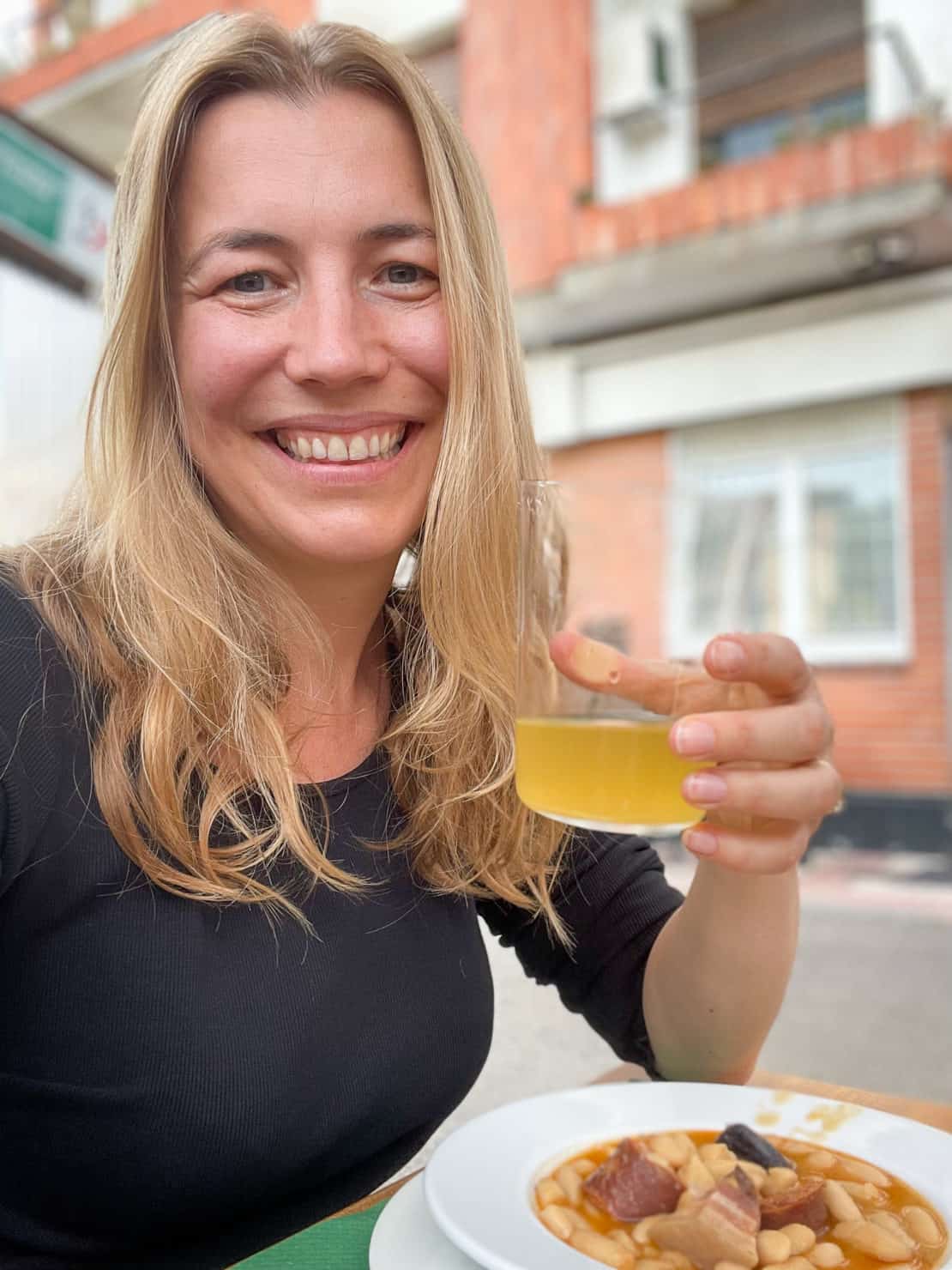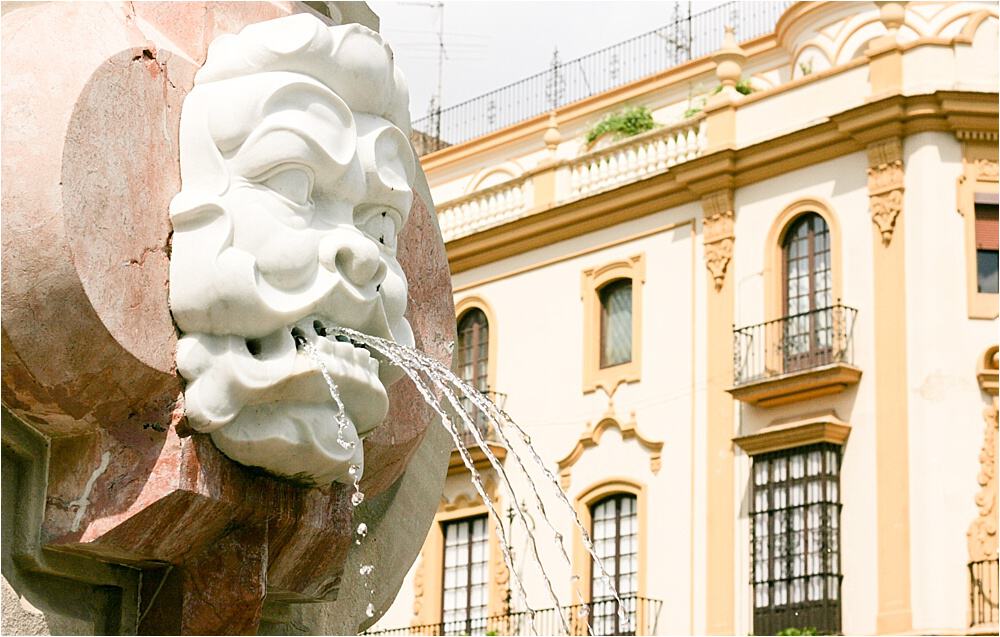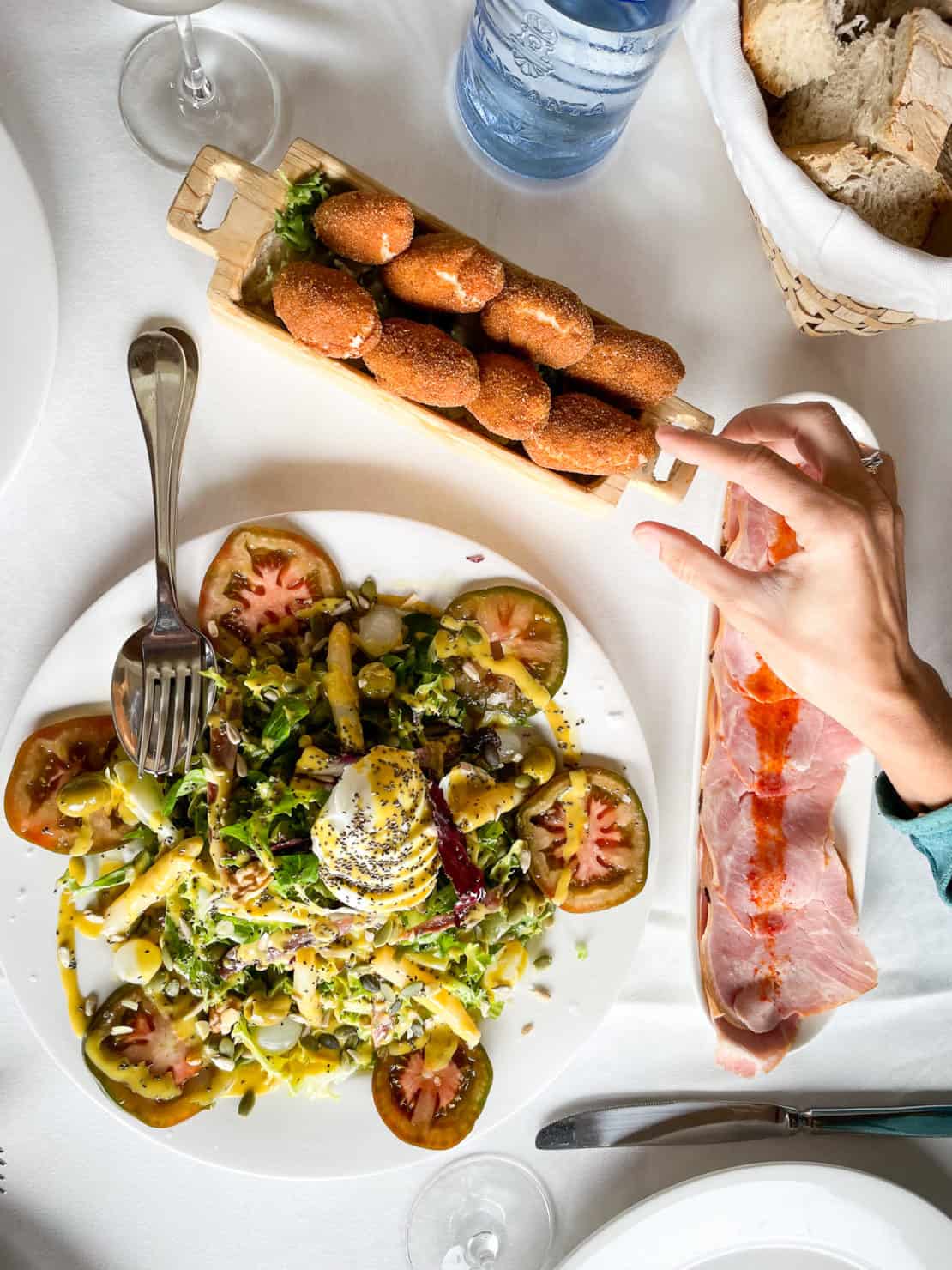Stay safe on your next adventure with this useful guide that answers the question: can you drink tap water in Spain?
The short answer? Yes. But if you need more convincing, then let’s take a look at the issues surrounding whether or not you can drink tap water in Spain.
Note, that this shouldn’t be taken as medical advice.

Is Tap Water Safe To Drink in Spain?
We all know that plastic bottles are no good but when you turn on the tap on holiday, you have to wonder: can you drink tap water in Spain?
Especially if you’re travelling with very young children or vulnerable adults, it’s natural to wonder about the quality of the water and you don’t want to take any chances.
As a professional travel writer and former doctor, not only have I filled my water bottle many times from the tap in Spain but also from her water fountains and all has been well. I lived in Seville for years and the worst tap water experience was that in the height of summer in Europe’s hottest city, the cold water came out warm.
The quality of tap water provided by the water companies in Spain is high, it is regulated by both the local authorities and the Spanish government and it has to met international water quality standards.
Everyone in the European Union needs to.
And you don’t need to take my word for it, you can look at these results from the Ministerio de Sanidad and their advanced public water filtration system.
That said, let’s talk about a few specifics.

When To Drink Bottled Water in Spain
While there’s no need to drink mineral water, it is a good idea to follow the usual strict hygiene procedures when making baby formula, in terms of boiling and then cooling water and making sure that the equipment is sterilised.
Whether it’s hard water or soft water, the water may not taste the same as at home. That’s often due to a safe but high mineral content rather than harmful substances or organic matter.
If the taste of the water really doesn’t suit you, well, you can always go for your favourite brand instead of the free tap water, but I’d recommend you just keep trying and battle to overcome your personal preference!
After a while, perhaps you’ll grow to distrust the taste of bottled water! After all, reusable bottles save you money and striving to reduce the number of single-use plastics is an excellent way to practice sustainable tourism.
While many places, like Barcelona, have public drinking fountains, many do not and so you may find yourself forced to buy bottled water if you can’t find other water sources. While you can trust public fountains, I wouldn’t recommend trusting natural springs.

A Note About Tap Water At Restaurants
I’m putting a note here for my friends from the United States and France, in particular. In my experience, in those countries, you’ll often be given tap water delivered straight to your table and topped up during the meal.
This isn’t the routine in parts of Spain (and many other European countries) whereby you will be brought bottled water unless you say otherwise.
This is annoying, since it’s largely a ploy to make money, but the phrase you need is agua de grifo. This means tap water and it’s perfectly fine for human consumption. The World Health Organisation agrees.
Useful Spanish Phrases for Drinking Water
- Un Vaso de agua – a glass of water
- Agua de grifo – tap water
- Agua potable – drinking water
In Conclusion
Spain has some of the best tap water in the world. Do your bit for the local area and the planet and travel with a reusable bottle and ask for tap water in restaurants.
More About Travel in Spain
- The ultimate Spain and Portugal itinerary planner
- Is it worth visiting Spain in winter?
- Everything you need to know about travelling solo in Spain
- How to get off the beaten track in Spain
- How to spend the perfect week in Spain
- The best road trips in Spain
- 21 unique and unusual things to do in Spain
- 49 interesting and Fun Facts about Spain
- How to spend a summer in Spain
